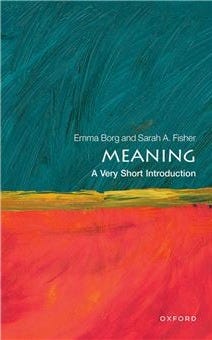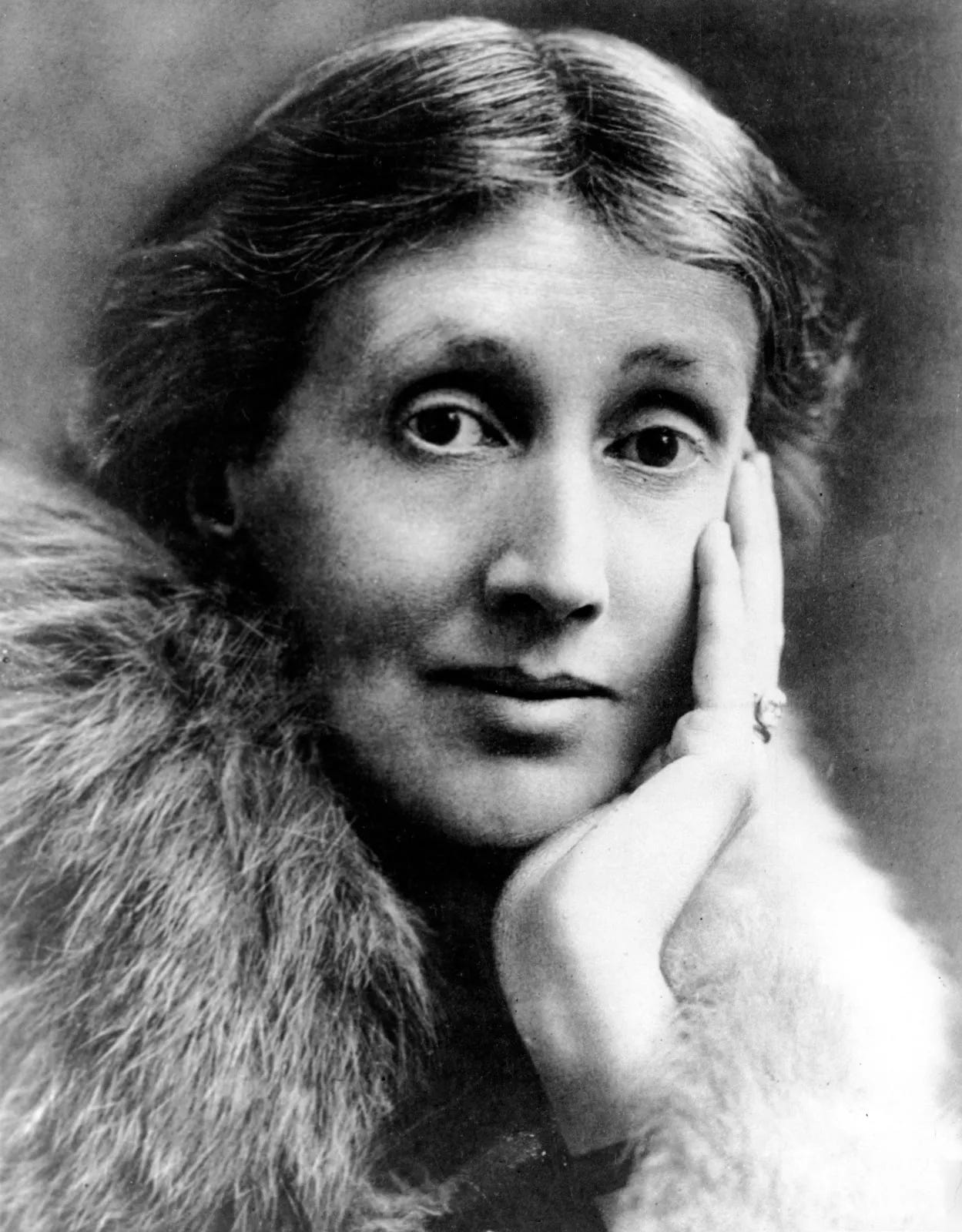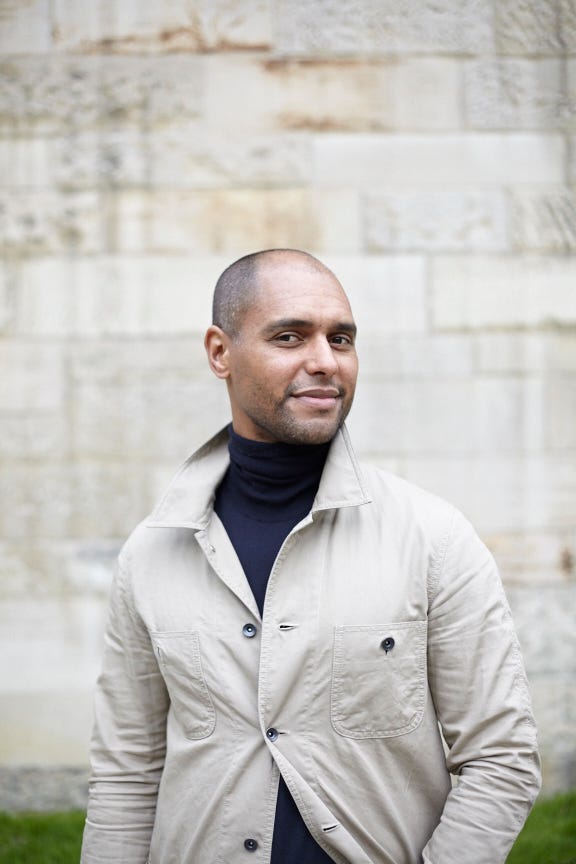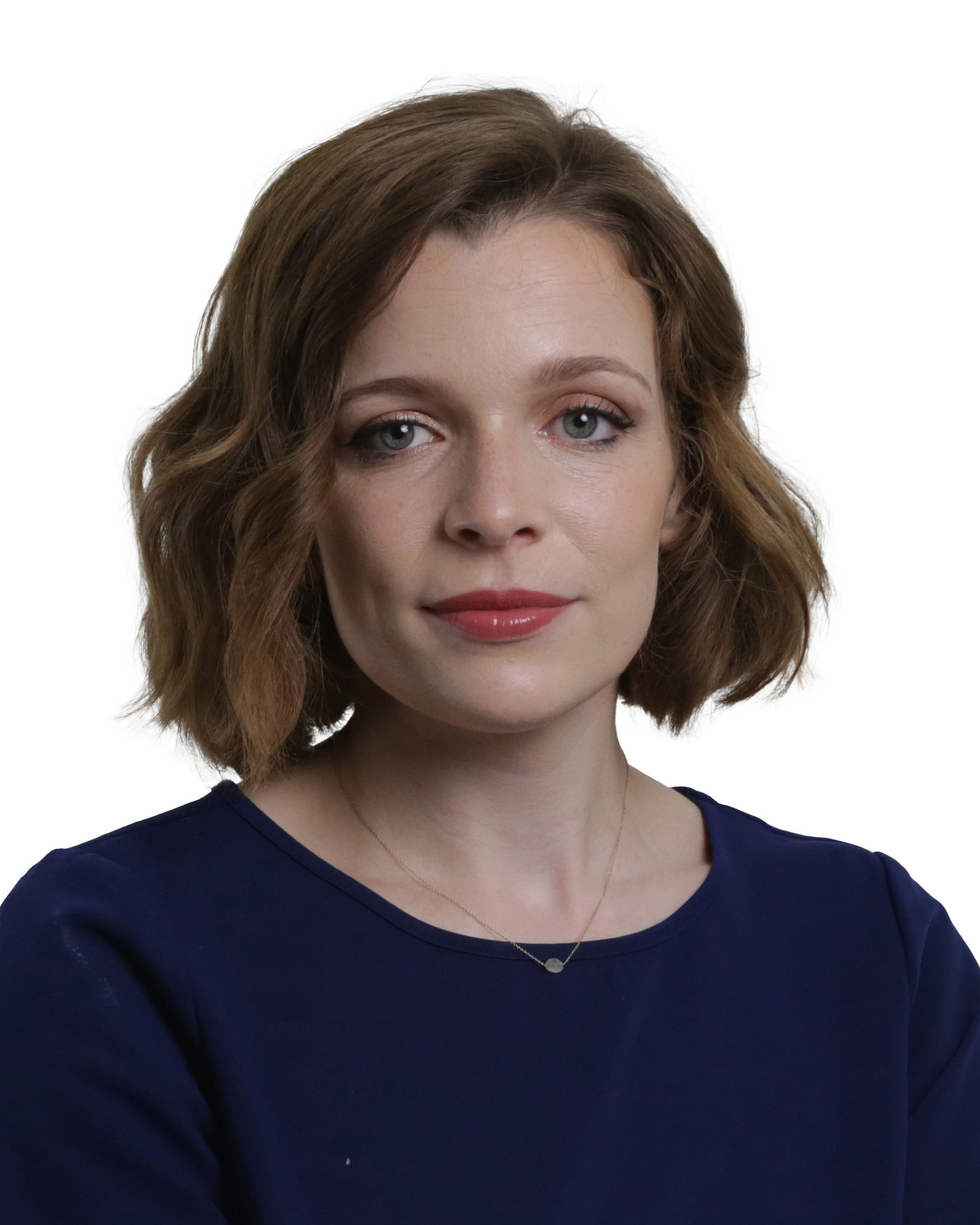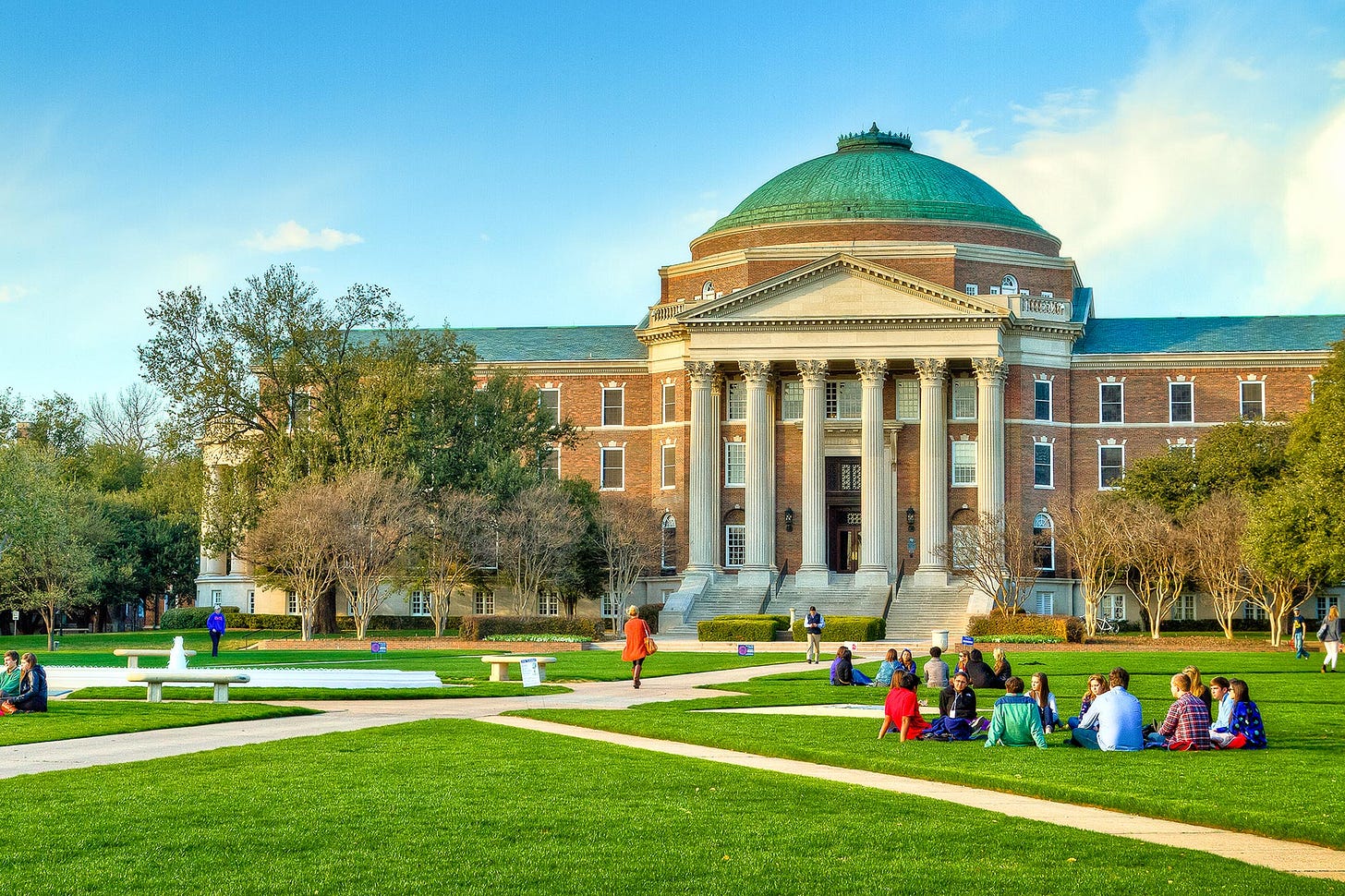Q: What is your favorite book or essay to give to people and why?
Sarah Fisher: Harry Frankfurt's essay On Bullshit. It's full of interesting ideas, as well as being fun and irreverent (and very short).
In this week’s newsletter:
Celebrate National Library Week
Scholarly Sources: Emma Borg & Sarah Fisher
MIT Press names a new co-editor of Inside Technology
Our new segment Inside Jobs with Jacquelyn Elias
National Library Week April 6-12
American Library Association celebrates National Library Week starting this Sunday! Every year, the American Library Association recognizes the valuable role libraries, librarians, and library workers play in transforming lives and strengthening communities. The first event was held in 1958 with the theme: Wake Up and Read! Learn more about the history of National Library Week here.
This year’s theme is Drawn to the Library! Award-winning author and illustrator Raina Telgemeier and cartoonist and comic theorist Scott McCloud have been selected Honorary Chairs of National Library Week 2025. Check out the events throughout the week and visit your local branch!
Monday, April 7: Right to Read Day. A day for readers, advocates, and library lovers to take action to protect, defend, and celebrate the right to read. The American Library Association (ALA) kicks off National Library Week with the release of its State of America's Libraries Report, including the list of Top Ten Most Challenged Books of 2024. (Above is last year’s report. This year’s is coming soon).
Tuesday, April 8: National Library Workers Day. A day for library staff, users, administrators, and friends groups to recognize the valuable contributions made by all library workers.
Wednesday, April 9: National Library Outreach Day (formerly National Bookmobile Day). A day to celebrate library outreach and the dedicated library professionals who are meeting their patrons where they are.
Thursday, April 10: Take Action for Libraries Day. A day to rally advocates to support libraries.
Reread our past newsletter “In the Stacks” for a Q&A with librarian Victoria James here! And check out our channel New Books in Library Science to stay up-to-date on new scholarship about libraries!
Scholarly Sources: Emma Borg & Sarah Fisher
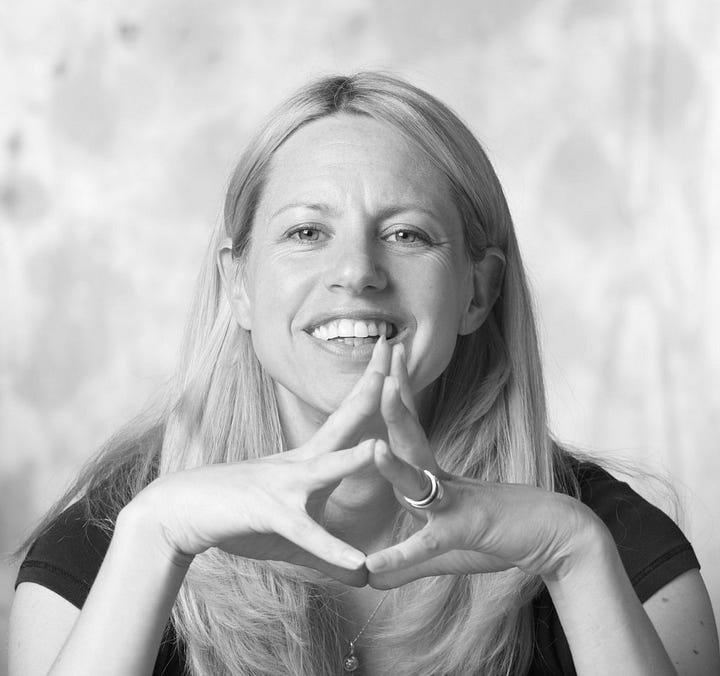

Emma Borg is Professor at the Institute of Philosophy, School of Advanced Studies, University of London. Sarah A. Fisher is a Lecturer at Cardiff University. Their co-authored book Meaning: A Very Short Introduction was published with Oxford University Press in 2025.
Q: What are you reading right now?
Emma: Sweet Home. It’s a collection of short stories by Irish writer Wendy Erskine.
Sarah: For the next few weeks I'm mostly re-reading philosophy papers as I prepare to teach them to my students at Cardiff University!
Q: What is your favorite book or essay to give to people and why?
Emma: I often recommend The Enchanted April by Elizabeth von Arnim to friends. It’s a short, light book (think Three men in a boat but by a woman and about women) but I defy anyone not to feel happier after reading it (and currently that seems like a particularly valuable thing).
Sarah: Harry Frankfurt's essay On Bullshit. It's full of interesting ideas, as well as being fun and irreverent (and very short).
Q: Is there a book you read as a student that had a particularly profound impact on your trajectory as a scholar?
Emma: Jerry Fodor’s The Language of Thought and The Modularity of Mind both had a big impact on me, both because of the commanding model of the mind Fodor sets out and because of his incredibly direct and engaging writing. Much of my work still assumes a broadly Fodorian perspective on the mind, but whether you agree with Jerry or not, there’s no doubt that his early books are exhilarating reads.
Sarah: The book that inspired me to do a PhD was Daniel Kahneman's bestseller Thinking Fast and Slow. For my philosophical perspectives on language, I owe much to two of Emma's earlier books— Minimal Semantics and Pursuing Meaning— which provide beautifully clear insight into the relationship between semantics and pragmatics.
Q: Which deceased writer would you most like to meet and why?
Emma: If it’s a philosopher, I think Aristotle in order to witness a genius at work discovering truths. If it’s a novelist, Virgina Woolf because Mrs. Dalloway is probably my favourite book of all time and it would be great to be able to meet her and tell her what an influence and inspiration her work continues to be.
Sarah: For me it would be Mary Wollstonecraft. This year I had the chance to teach her 1792 work, A Vindication of the Rights of Woman, which is a powerful rallying cry for women's liberation. What I admire most about Wollstonecraft is her intellectual courage and ferocity.
Q: What's the best book you've read in the past year?
Emma: I recently finished and loved Cloudstreet by the Australian writer Tim Winton. It’s a long, somewhat sprawling book but incredibly evocative of time and place.
Sarah: Best novel: Rose Tremain's Absolutely and Forever. Best philosophy book: Jessica Keiser's Non-ideal Foundations of Language.
Q: Have you seen any films that left an impression on you recently?
Emma: It’s from last year, but Zone of Interest has stuck with me as a stark portrayal of man’s cruelty to man and, in Arendt’s terms, the banality of evil. It also showed that a film can be profoundly and deeply shocking without showing anything graphic on screen.
Sarah: I recently watched Einstein and the Bomb, which has all sorts of resonance in the present day— from the risks of technological breakthroughs to the relationship between politics and academia.
Q: What do you plan on reading next?
Emma: In Philosophy, I'm looking forward to reading Explaining our Actions by Peter Carruthers when it comes out this summer. Outside Philosophy I don’t read a lot of non-fiction, but my son has just given me Kings of the Yukon: An Alaskan River Journey by Adam Weymouth, which he says I’ll like. So that’s next.
SF: I have an ever-growing pile of books to read! Currently at the top is a recent book called The Politics of Language by David Beaver and Jason Stanley.
Q: Who should read Meaning?
Emma: If you’ve ever asked yourself questions like “Where does meaning come from?”, “What sorts of things have meaning?”, or “How do we grasp the meaning other people want to convey?”, then I think Meaning is for you.
Sarah: I hope it will appeal to anyone curious about the nature of language and thought.
Listen to their full interview about Meaning: A Very Short Introduction on the New Books Network!
MIT Press Names A New Co-Editor of Inside Technology Series
Professor Edward Jones-Imhotep, IHPST director, has been named co-editor of MIT Press’ Inside Technology, one of the field’s most prestigious book series. This series explores the complex social processes that shape technological development. With expertise spanning history, sociology, engineering, political science, economics, and anthropology, Inside Technology fosters a broad and interdisciplinary approach to understanding technology’s role in society. Read Dr. Pamela Fuentes Peralta’s full article here, where you can also find NBN interviews that feature several titles published from the series!
And give the MIT Press Podcast channel on the NBN a listen to find interviews with experts producing innovative research!
Inside Jobs with Jacquelyn Elias
In our new segment, Inside Jobs, we interview people who work in fields closely related to academia. Our first guest is Jacquelyn Elias, a News Applications Developer at The Chronicle of Higher Education.
Q: Can you share a bit about your background, and what led to your career at The Chronicle of Higher Education?
A: I have always had an affinity for writing with many notebooks of poems and short stories that I wrote as a child that my mom is still struggling to sort through. I grew up wanting to be an author until I first discovered journalism at my high school newspaper where I really enjoyed the idea that you can take any specific topic you are interested in, research it, ask complete strangers to explain it to you, and then explain it to the general public. I think this curiosity and the privilege to constantly learn is part of what draws me to journalism. So entering my college career, I knew that journalism was where I wanted to end up.
But I was also balancing an interest in design and coding. I really enjoyed the page layout process when putting together a newspaper, and I had also experimented a bit in web design/creative coding in other classes and projects. I looked for colleges that would allow me to double major across journalism and computer science, which is how I ended up at Southern Methodist University. A professor mid-way through my college career introduced me to the world of data and visual journalism. I learned that I could combine these skills to tell visual and data-driven stories, and publications actually have roles for this!
I graduated knowing this was the work that I wanted to do, but I had very few good work samples of me being able to do it. So through a lot of luck, I was able to get a last-minute internship at the Atlanta-Journal Constitution in Atlanta after one of their interns got a full-time offer. And this experience gave me several months of producing the type of work that I wanted to do in my career. This internship, without a doubt, taught me the skills and gave me the time to produce great work to land my current job. Now, other than reporting on my college newspaper, I didn’t have much specific higher education knowledge before coming to The Chronicle. But I did (and still do) have so many questions about the functionings of the higher ed world, and this has kept my job interesting over the years.
Q: What is your role as a news applications developer?
A: I work on stories that are at the intersection of higher ed and data. I help reporters find statistics or analyze datasets to incorporate into their daily stories. On stories with longer deadlines, I usually work with reporters to help acquire, analyze, and visualize a dataset while they work on gathering sources and reporting on the topic. Or sometimes a feature story calls for a custom presentation that I will design and build. A couple times a year, I also work on standalone data interactives, which are web-based tools for readers to engage with a specific dataset. An example of this is our interactive on Who Does Your College Think Its Peers Are?
Q: How have your skills as a news applications developer informed your perspective as a journalist and vice versa?
A: Oh, good question! I guess the types of stories that I typically pursue usually start by asking the questions “what does the data say?” or “what data is available?”. By nature of this, my reporting usually looks at how to contextualize a certain change or trend by using data to provide an authoritative comparison. I also tend to think in advance of visually compelling stories and how I can use interactivity or visualizations to make what I’m writing about more impactful. Now, as a journalist, I bring a skepticism of new technologies that a developer may not need to consider, and the choices I make in my analyses and scripts need to maintain journalistic ethics. For example, as a journalist, we try to be as transparent as possible with our methodologies and caveats.
Q: You’ve written quite a few articles for The Chronicle. How do you decide what to write about?
A: Deciding what to write about is usually a balance of what’s currently going on in the world and then judging how much time I currently have to give to a project. Typically the stories that I work on take a bit longer than a typical Chronicle daily story, so I try to find news topics that will have a longer news cycle than just a day or two. And, it also needs to have data available and a data angle, which is a key factor I consider in what stories to pursue. So generally, I come to this by keeping abreast of what new data sources will be released in a given year and thinking through what questions or stories may be within it. This way, I can plan ahead and have a quicker story related to a data drop ready to go.
For my longer stories, sometimes they come about in parallel to other packages or stories that the newsroom is working on such as our coverage of the public’s perception of higher education or a piece I did on college president resignations. Other times, it’s a quicker story where I realized a deeper analysis of the data could be interesting, such as an explainer I did years ago on student-loan debt. Once I have a specific idea about a data angle on a certain topic, my editors are critical in helping me refine that idea and working out the framing to make it relevant to our higher ed audience.
Q: Can you share the nuts and bolts of how you develop a dataset into a compelling article and decide on, then create, the accompanying data visualizations?
A: My first step is to usually start with a hypothesis or question such as: do faculty’s pay keep pace with the cost of living? I’ll reference this piece a lot in my answer because I think it helps to provide a real example of how this process plays out, especially since the process can change a lot story by story. But generally, I usually come up with these questions in response to an event that may have occurred or a new policy; or, sometimes its a data release and thinking about what could potentially be within the data. For the cost of living story, this idea came about after reading other coverage of homelessness among students and wondering how this affects the higher ed workforce. Once I have a question, I then start the process of tracking down the right data. The majority of the time, this will lead me to a pre-existing public (or sometimes proprietary) dataset. And a few times, this will result in our newsroom needing to compile or collect the data either by scraping, surveying, or manually tracking. I then will make sure the dataset I have is cleaned and ready to be analyzed.
For quick projects, I will usually just use Excel or SQL. For longer projects, I usually use a combination of scripting and SQL queries, and I keep a detailed data diary so that I can reproduce my analysis. Once I know the limitations of the data that I have, I then build a mock-up for how I envision an interactive. When thinking this through, I think of the main factors that are going to lead to variability in the data. In this case, I thought it would be faculty rank, institution type, and geography. So I then think of visualizations or charts that then highlight these different factors by thinking through the relationship that they have within the data. Is it location? Then a map could be useful. Is it a part of a whole? Then some sort of stacked bars/pie chart. Is it an individual institution or campus? Then dots or bars may best represent it. When I first designed that piece, I used a map as the navigational tool for the interactive. After a first build, my editors and I decided that we needed to re-design the piece to focus not on a specific county, but rather to focus on a reader’s specific institution where they work. Our aim was to design a piece that allows a personalized look at the data rather than just top-level findings, which is what drove my current design for it.
For this story, my colleagues on The Chronicle’s data team did a lot of the data analysis. They worked with the reporter who was working on the accompanying stories that would be packaged with my interactive and gathered and answered any data-related questions the reporters had. While this reporting was being undertaken, I then developed the interactive itself. My development process usually involves doing two to three week sprints where I try to get a new version of it out to editors to take a look and provide feedback as needed. About a week or two before publication, I then start distributing a test version of the interactive to people around the newsroom to try and break it, and usually our copy editors will start editing the story at around this time. And finally after this step, we are ready to publish! This whole process from conception to publishing can take several weeks to months.
Q: Can you share some of the topics that are trending right now for journalists of higher education?
A: Higher education has had a tumultuous past few years, and the past few months has led to levels of disruption that we probably haven’t seen since the beginning of the Covid-19 pandemic. Over the past couple of years, we have seen a rising politicization of education, and higher education as a part of this, and we have also seen the general public question the value of higher education and whether it’s worth its high price tag. Right now, we are thinking about topics such as what does the future for colleges look like with intense scrutiny of federal grants and executive challenges to the Department of Education. We are thinking about how the removal of DEI initiatives on campuses will affect college retainment and enrollment of traditionally underrepresented students. And colleges are also facing challenges from within such as how to incorporate (or not) revolutionary new tools like ChatGPT into their curriculums and how it affects students’ learning outcomes. They’re also looking at how to balance free speech and student safety on campus with recent criticisms and investigations into universities’ handling of campus protests. And personally for my little subset of journalism, I’m thinking about whether or not we will still have reliable federal higher education data next year and in the years to come.
Q: Are there any articles you’re working on now we can look forward to?
A: My team and I hope to have some new trackers like our DEI Legislation Tracker out in the not-too-distant future to document and track effects of recent federal changes and supreme court decisions. But who knows what the news will bring!
Q: Do you have any advice for people who want to pursue a career in journalism?
A: It’s so important to have strong work samples that you think speak to what you want to do and your abilities. One of the great things about journalism is that we need reporters from all different backgrounds. So whether you are changing careers or just starting off, the sooner you can start getting work published anywhere that can speak to what you want to do, the more you will have to show when trying to get jobs in the field. I think also developing your specific niche that you excel at can help you stand out in the job market. For me, that’s my combination of reporting and coding. For others, it’s maybe a specific topic or type of writing.
Do you have any recommendations of books about data analysis, coding, or journalism that you want to share?
I really enjoyed the book Invisible Women: Data Bias in a World Designed for Men by Caroline Criado-Perez! It’s been a while since I read it, but it sparking a lot of story ideas, and it raises some good questions about what to do when good data doesn’t exist for a certain population and why it is so important to have good data to create an inclusive and equitable society.
Is there someone with an exciting job you’d like us to interview? Or a job you want to learn more about? Let us know in the comments or email us your idea!




